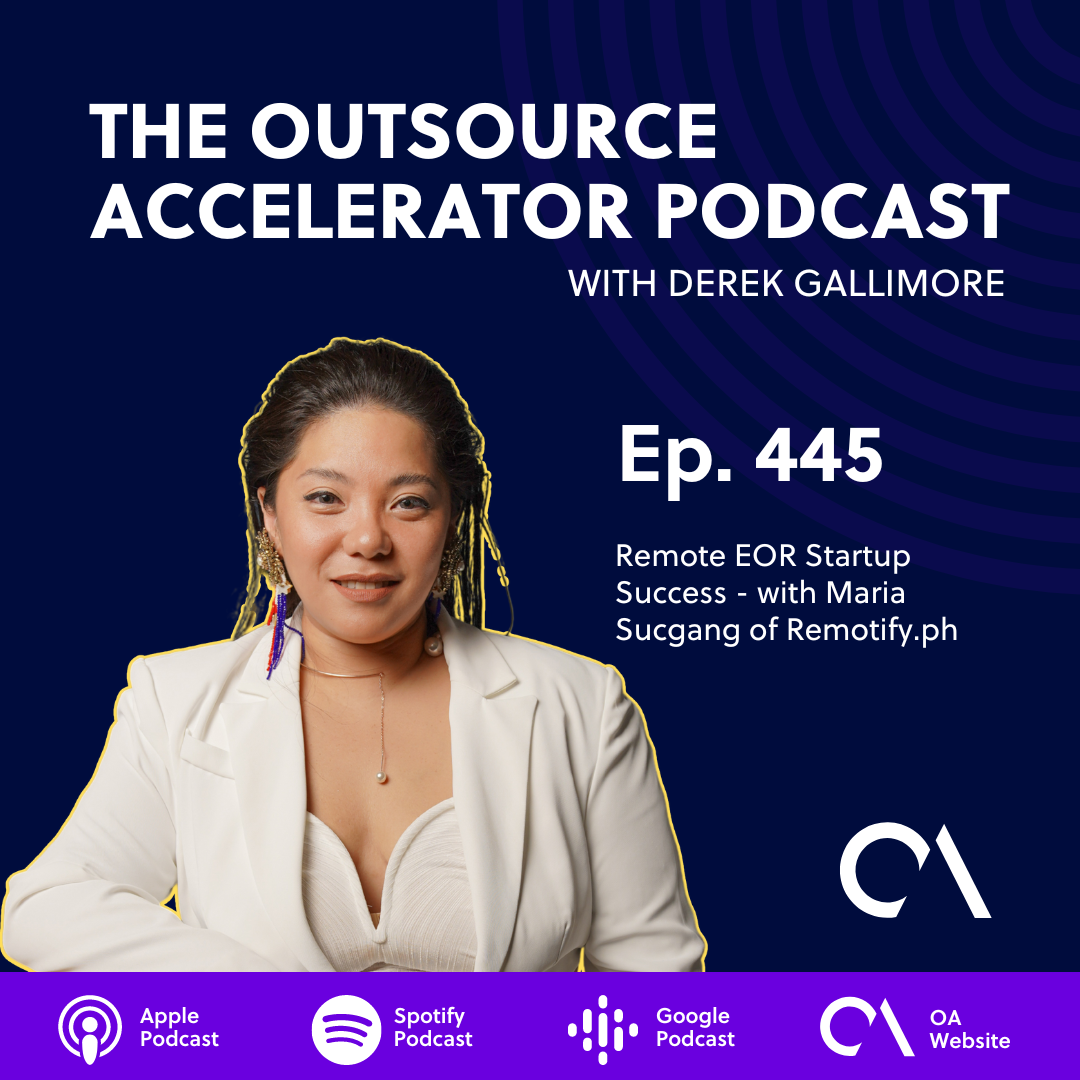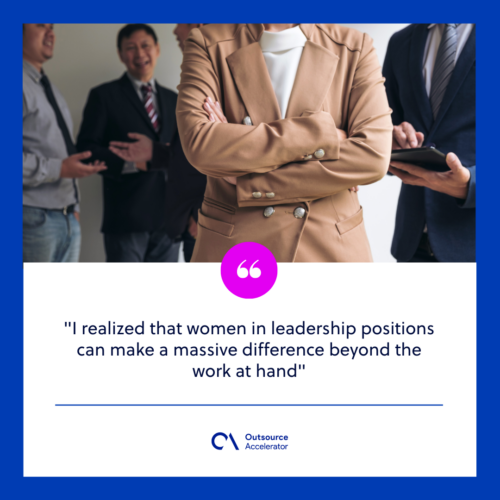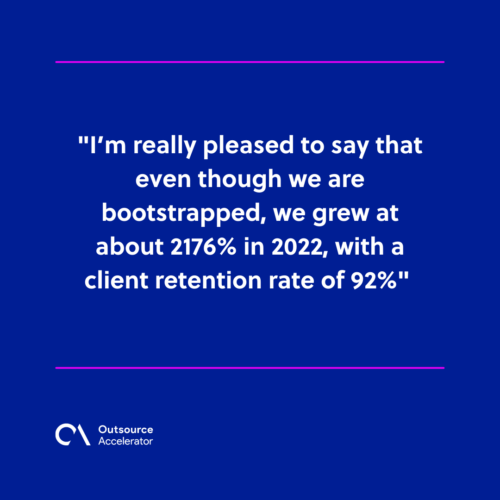Remote EOR Startup Success – with Maria Sucgang of Remotify.ph

In this episode, Derek speaks with Maria Sucgang, founder and CEO of Remotify.ph, a remote-based Employer of Record (EOR).
They discuss Remotify’s background, remote work, and how the world’s view of outsourcing is changing.
Remotify: A place of value, connection, and care
Maria began her career in the BPO industry in 2005.
“I had a real opportunity to be exposed to really inspiring women leaders, [and] I realized that women in leadership positions can make a massive difference beyond the work at hand, but also can impact to the extent that it touches more people’s lives in the Philippines.”
The pandemic proved to be a pivotal point in her decision to set up her own shop. Observing remote workers, she noticed the need for an employer of record to adopt them, giving birth to the idea of Remotify.
“One of the major caps we’ve identified is that most people working 100% remote are usually gig workers without employers on record. And that typically means they’re paid directly by foreign clients without social contributions or proper taxes filed.
The result of that is less opportunities for them to make exciting or life-changing purchases.”
The Remotify,ph founder added, “And then [remote workers] are exposed to another piece, which is work isolation, or running without a security of tenure, employment, and not having proper HR support. So they’re stripped of those benefits that should be given.”
On starting Remotify, Maria says, “what if you can create a workplace that’s not an actual place, but anywhere employees [can] feel valued, connected, and cared for. We wanted to put dignity and stability to these remote work opportunities.”
“So as an employer of record, we take care of everything, from HR to payroll to hiring to also engagement of the team. We afford our clients control over their day-to-day operation, but then we make sure that there’s proper KPIs in place, there’s attendance, timekeeping, there’s all of these things.”
“And this means that employees get to enjoy all the benefits and security of a normal corporate setup with the freedom of remote working but without the fear of not having a job the next day.”

A new generation of remote workers
On managing the remote work setup, Maria sees pros and cons, but claims the execution is what matters.
“It’s very important that as we transition to remote, we don’t forget that it’s still a corporate environment. And that’s where systems play in.”
“[It’s] understanding that the psychology of great work is making people come alive in their work, if they’re put in the right roles, and they feel they add value, and they’re able to be creative. And the global employment market is actually opening up for more Filipinos as well.”
“At the end of the day, it’s not a charitable institution; it’s a business. It’s all about systems, whether it’s remote or not.”
Speaking further about Filipino talent, Maria says, “that’s one of the drivers why I founded Remotify. As a Filipino woman, I’ve spent my whole career pushing for representation and equality, and it can be frustrating as a minority to know just how much talent and drive you have without having the equal footing as others to showcase it.
So Remotify brings Filipino talents to the doorstep of the rest of the world.”
Handling rapid growth
Maria proudly recounts Remotify’s rapid growth.
“We use Outsource Accelerator for one. And we make sure that we invest in close relationships with our clients and make sure that we’re on point with service. And that made us grow with a lot of word-of-mouth recommendation.”
“We’ve grown to almost 100 employees on our record. And from the first year to the second year, I’m really pleased to say that even though we are bootstrapped, we grew at about 2176% in 2022, with a client retention rate of 92% and an organic web traffic growth of 600% in the last year.”
Maria sees the risk of companies becoming “like production lines” as they grow, but for her, “it’s always in the design of the operation.”
“Of course there’s a need to automate, there’s a need to scale, there’s a need to grow. But if your framework is solid to make sure there’s the human touch, [then] that shouldn’t get lost if you’re clear on your organization’s mission and values,” she noted.

Evolving perception of outsourcing
Finally, Maria describes her clients’ reactions to outsourcing.
“Some of them are shocked with cost savings. And when they tried it, they really are amazed at the level of talent of the Filipinos, because we’re in the privileged position where we’re ahead by decades [in] outsourcing.”
“From an awareness perspective, I think more and more businesses are now more aware of the advantages of outsourcing and we’re moving away from the typical perception.
[Before], when you think of BPOs, it’s typically contact center work. But now more people understand that it’s also software development, it’s also the creatives, [it’s] all the good knowledge things.”
You can learn more about Remotify at https://remotify.ph/.







 Independent
Independent




